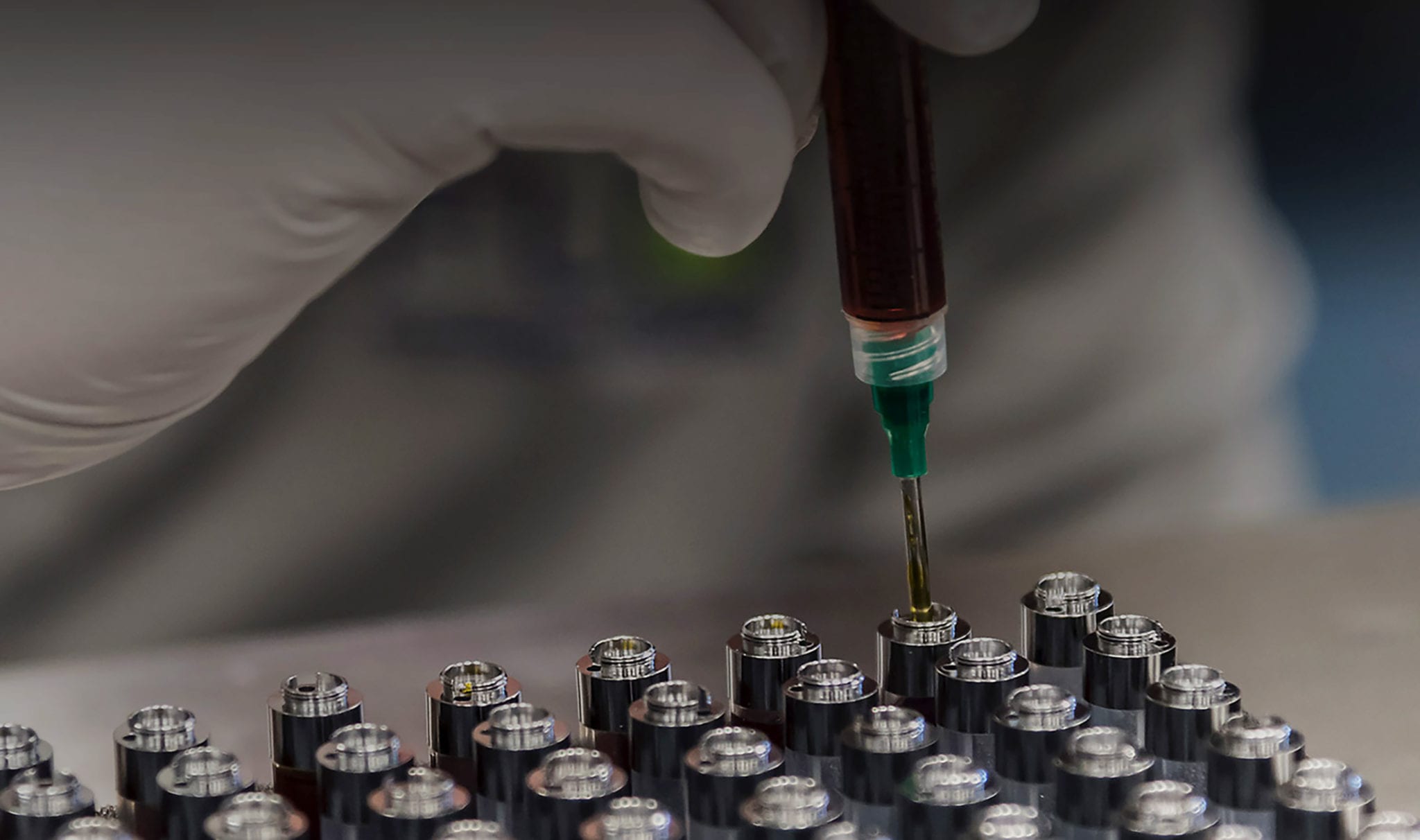The term ‘vertically integrated’ gets tossed around ad nauseam in the cannabis space, but Westleaf Inc. (TSX-V:WL)(OTCQB:WSLFF) is one of the rare Canadian pot firms that may actually deserve the title.
The Calgary-based company owns assets across the entire cannabis value chain, including cultivation, manufacturing, branding, and a growing number of Prairie Records retail spaces — a unique store concept that allows Westleaf to build brand awareness amid Canada’s restrictive regulations.
But what further separates the company from the 174 other pot firms operating in Canada, is its extraction business.
Mugglehead interviewed Adam Coates, chief commercial officer at Westleaf, to discuss how the company’s new extraction facility in Calgary will serve as a gateway into the cannabis market for second-phase products that become legal in Canada later this year.
“Moving upstream into the extraction business, this is where we are really excited to participate in this new wave of products that are coming available and legal in Q4,” Coates said in a phone interview.
To maximize the new facility, Westleaf has partnered with Xabis, a world-leading Colorado-based extraction company with decades of combined experience producing high quality marijuana derivative products. Coates said the partnership, along with Westleaf’s unique retail strategy, will give the company a competitive advantage in being adaptive to consumer needs and interests.
The Plant by Westleaf Labs
In July, Westleaf announced it completed construction of Phase 1 of The Plant by Westleaf Labs that has the capacity to process 65,000 kilograms of cannabis a year. Phase 1 is a 15,000 square foot cannabis extraction, processing and product formulation facility and there’s an additional 45,000 square feet ready for expansion.
Westleaf Labs allows the company to produce a variety of cannabis products in house, from the gel caps and tinctures that are legal today, to the vape pens and topical products that are coming online later this year.
“The facility is really going to be our way of entering in and participating the next generation of products, which we think are going to be the biggest products and margin opportunities in cannabis and cannabis production,” Coates said.
But the company can also utilize the plant to provide contract manufacturing and white-label opportunities to other cannabis companies.
Westleaf inked a deal with pot producer Delta 9 (TSXV:NINE) this summer to supply about $4 million in white-label cannabis products as part of a one-year agreement, with the option to increase the amount up to $16 million a year.
“We’re really excited about being able to offer to select partners white-labelling or contract manufacturing services to be able to fill that capacity of the facility that we built,” said Coates, adding the company could sign more deals this year to further diversify its revenue stream.
The Delta 9 contract starts Oct. 1, and Coates said the company expects Health Canada licensing by September or October to start producing products straight away.
Xabis deal positions Westleaf to be a Cannabis 2.0 leader
But Westleaf is eager to roll out its own brands and wants to create and produce as many in-house next-generation products as possible at The Plant, Coates said.
The company signed an exclusive partnership this year with Xabis, a cannabis extraction industry leader that operates out of Colorado and in eight other U.S. markets.
In addition to designing Westleaf’s facility, Xabis will also help the company expand its product line by providing more than 200 individual product formulations (SKUs) and 24 different form factors.
“They bring a whole lot of intellectual capital that will allow us to ensure that our line and product offering that’s in line with what’s on trend in the United States from what they’ve seen,” said Coates. “But most importantly, they are going to help us produce high quality and consistent product.”
Coates said as a retailer the company sees all of its peers’ cannabis products, and quality is something that is not synonymous right now even in the dried flower category. But producing marijuana derivative products is even more challenging, so being able to leverage Xabis combined 75 years of expertise, mostly on the side of scientific research and development, will give it a leg up on its competition.
Canada’s cannabis derivative market
A Ernst & Young survey estimates there could be up to three-million more consumers in Canada buying cannabis once phase-two products are made available, and Coates said the company is confident it will capture a large chunk of the expanding market. Alternative cannabis products could be a $2.7 billion market in Canada, Deloitte estimates.
In Colorado, the most mature legal U.S. cannabis market, the consumption of edibles, concentrates and vapes are on pace to make up more than 50 per cent of the US$1.6 billion legal pot sales this year, according to BDS Analytics.
Coates said Westleaf will first roll out a vape line, under its General Admission brand, when they are legal for sale in Canada, and then the company will produce edibles and topicals out of its facility.
Distinct retail chain adds value
Westleaf currently owns and operates three Prairie Records pot stores in Saskatchewan and was granted a licence this month by the Alberta government to open a fourth shop in Calgary near its home base. The company owns retail development permits for another 50 locations and it is poised to open 30 more stores by the end of 2020.
Prairie Records is a unique retail concept that marries cannabis with music by displaying product information on square-shaped cards that mimic a record disk. Details of each strain is printed on the disk encouraging customers to explore and learn about the cannabis products, providing a distinct in-store experience.
Coates said Westleaf plans to utilize its engaging retail stores to provide information and demographics to better its product development and produce what consumers are demanding very quickly.
“One of the great things about owning retail is that customer feedback loop and understanding trends and what customers are looking for and being able to tune our products and offer products that capture a huge number of consumers and what they’re looking for,” he said.
When legalization 2.0 takes place in Canada, most companies won’t have control of the manufacturing process, Coates explains. Westleaf feels really good not only about its in-house ability to make the extracted products, but to secure distribution through its own retail channel — making it a truly vertically integrated cannabis company.
“It will help grow our brand and the loyalty of the consumers as they start testing our products when they become legal and on sale,” Coates said.
Disclosure: Directors of Mugglehead own shares of Westleaf and Westleaf is an advertiser on this website.


















